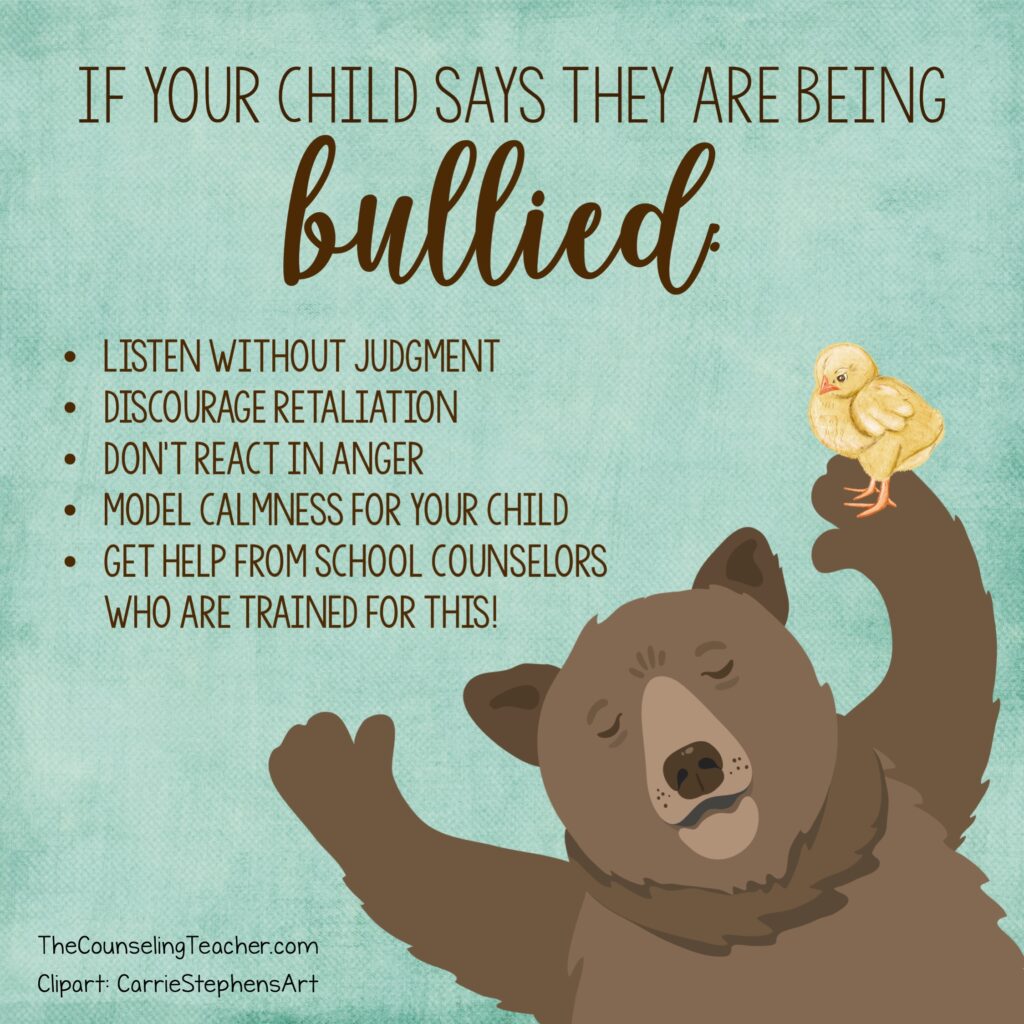
There’s no denying that bullying in schools is an ongoing problem. It can be heartbreaking to learn that your child is being bullied at school. Your parental instincts kick in and all you want to do is protect your child from the ego-busting, confidence-dwindling, behavior from other children at school.
Instead of acting on those instincts, it’s often more helpful to take a deep breath and focus on the matter at hand and consider the best way to approach the problem. The last thing you want to do is make the situation worse for your child.
To help you assist your child in coping with bullies, I’ve put together this quick bullying guide to help you keep yourself in check when emotions start flying.
Don’t Act in Anger
Bullies often enjoy all types of attention, including negative attention. So if you participate in their behavior by bullying the bully’s parents, the bully, or by causing a scene, it may only feed the fire.
Instead try to keep cool, and consider calmly alerting the school of the bully’s behavior so it’s on their radar. Remember, school counselors are trained to work with students (both the bully and the “bullee”) when these situations arise.
Reach Out to Someone Who Can Help With Bullying
It is the school’s responsibility to address any instances of bullying. And now, more than ever, they take this responsibility seriously. But it’s still a good rule of thumb to follow up with the school to make sure it is being resolved. Due to confidentiality laws, they may not be able to tell you every detail in the follow up, so don’t assume that nothing has been done just because they can’t share all of the facts.
School counselors are the go-to people to help with bullying situations. They are trained to support your children and be an advocate for them. They can also give your child the tools they need to cope with bullies.
You can also ask to borrow some of the bullying resources for school counselors that they tend to keep on hand at school.
Keep an Open Mind
Not every situation that is labeled bullying is ACTUALLY true bullying. In some instances, a child may confuse normal conflict with bullying. School Counselors are trained to know the difference and help your child navigate through these situations.
Do Not Promote Physical Altercations
In movies and media, we often see parents of bullied children advise their kids to fight back with physical aggression. This is a huge no-no because it’s only another feather in the bully’s cap. They may WANT your child to act out, sometimes aggressively. It will only promote the problem, cause injuries, and other behavioral problems in the future.
Retaliation is also against school policy, no matter how justified you may think it is. Your child will likely get suspended or in deep trouble for harming a bully.
If Your Child is Being Bullied, Listen
One of the most important tips on this list is to listen to your child. Chances are, they’re embarrassed to talk about the bullying. But if they’ve come to you for help, consider yourself lucky, and in a position to do some good.
Ask your child what you can do to help them and listen without judgment. The point is to keep your child talking with you so you have a window into what is going on at school—a place where you cannot always be.
Never Blame Your Child
Sometimes, our minds go to places that aren’t beneficial to our children. We start to wonder why they are being bullied, and maybe even what our child did to promote the bullying. This is the wrong place to go…because your child is opening up to you. If you blame your child, they will close that open door, stop talking to you, and you’ll no longer have an open line of communication.
Don’t Dismiss the Their Feelings
Children need to put a name to what is going on. Give them the terminology and teach them about bullying. Call it what it is. If they understand that it’s wrong, and they are being bullied, they can learn to cope with the problem much better.
Practice compassion and empathy when your child expresses their feelings, and help them understand what is happening, stressing that it is not their fault. If they have trouble managing their emotions, create a calm down corner in your home where they can relax.

Moving Forward
When your child is open to speaking with you, and school officials, about bullying they can begin to regain their confidence. Keep your child involved in activities and friendships that complement their abilities and make them feel good about themselves.
School officials can help calm the situation from inside the school. But at home, you are the one your child needs the most. Controlling your feelings, keeping a level head, and listening with empathy are the best things you can do for your child.


